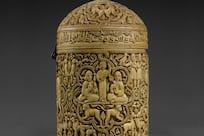An Al Qaeda-linked group has been involved in the recent attacks on the Libyan capital Tripoli, a powerful militia propping up the UN-backed government has claimed.
Fighters from the coalition of the Benghazi Shura Revolutionary Council, which held Libya’s second largest city for two years and included groups that pledged allegiance to ISIS and Al Qaeda, are believed to have been seen on the outskirts of Tripoli by pro-government brigades. It is the first time that the government has named the group and accused it of involvement in the clashes.
Over a hundred people have been killed since a grouping of anti-government militias launched an offensive on Tripoli in late August. On Sunday, heavy shelling of residential areas in the south and centre of the city was reported.
"Yes, (BSRC) are here. Many wanted criminals are involved in the assault on Tripoli. They fight alongside Salah Badi, who has no mandate from any government body to attack the capital," Ahmed Ben Salim, spokesman for the pro-government Special Deterrence Force known as Rada, told The National.
Salah Badi was a senior commander in Libya Dawn, an Islamist coalition that razed Tripoli's main airport to the ground in 2014. He recently returned from his base in Turkey to lead an attack on Tripoli on August 26 with fighters from his Al Samoud Brigade and a group known as the Kani, which is based in the Libyan suburb of Tarhouna. Pro-government brigades often accuse extremists of attacking them, but it is the first time BSRC are said to be behind the attacks.
Over a hundred people have been killed in the clashes, 80 remain missing and some 350 have been injured the health ministry said. A ceasefire brokered by the UN mission to Libya in early September has repeatedly been ignored, but the largest of clashes broke out on Thursday. It pits a grouping of pro-government militias, informally known as the Tripoli Cartel, against a coalition of brigades from outside the capital, including Mr Badi’s forces. The UN mission for the first time publicly called him out on Thursday night for instigating the resumption of violence, as well as a nominally pro-government brigade known at the Abu Sleem Central Security Force.
“One of the most prominent leaders in the war against Tripoli is Mohamed Darmona, a violent criminal who was arrested in Misrata but released without being referred to the judiciary,” said Mr Ben Salim, the spokesman for the pro-government brigade Rada.
“He has attacked Meitga (Tripoli’s sole functioning airport), kidnapped people and tried to release ISIS fighters that Rada holds. Some of these ISIS members are important in smuggling fighters into Libya, but he still tried to release them. These people are illegitimate and do not follow any governmental authority,” Mr Ben Salim added.
Rada is an ultra-conservative brigade that controls Metiga airport and a nearby prison that holds some 2,500 inmates including the brother of the Manchester bomber, Hashem Abedi. They are officially a brigade operating under the interior ministry but largely do as they please.
_______________
Read more:
UN offers chance for reset on Libya
Chad army kills two civilians near Libyan border
Tripoli ceasefire broken as airport shelled
_______________
The Tripoli Cartel, which has held sway for more than two years since ousting Libya Dawn, are accused of extortion and kidnapping of rivals. Despite this, they insist they want peace and presidential elections to remedy the capital’s chaos.
"There needs to be a provisional suspension of all the fighting with all forces withdrawing to their bases without any conditions. Then we need parliament and government elections," Jalel Al Wershafani, spokesman for Tripoli's most powerful force known as the Tripoli Revolutionaries Brigade, told The National.
A French-led push for December elections have failed amid the turmoil and the Tripoli Cartel have fought against rival militias that attacked the capital since late August.
Repeated condemnations and calls for peace by the international community have failed, as the violence that initially encroached on Tripoli’s suburbs threatens to reach the capitals centre and most populated areas. The Al-Samoud Brigade led by Salah Badi did not respond to requests for comment.






